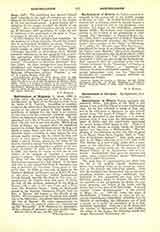

Bartholomew of Brescia, an Italian canonist, b. probably in the second half of the twelfth century at Brescia; d. 1258. He studied Roman and ecclesiastical law at Bologna, where he himself became a teacher. It is believed that he was murdered, when Ezzelino, the leader of the Ghibellines, captured Brescia (1258). His literary work consisted almost entirely in the revision of the productions of other writers. His “Brocarda”, or Canonical Rules (Lyons, 1519), were a working-over of those of Damasus (twelfth and thirteenth centuries); his “Casus decretorum” were a revision of the “Cases” of Benencasa (d. c. 1206); the “Historiae super libro Decretorum” reproduced the work of an unknown author. Both his “Casus” and “Historiae” derive their importance from their incorporation into the Paris edition (1505) of Gratian’s “Decretum”. The “Ordo Judiciarius” of Tancred (d. c. 1235) was also revised by Bartholomew. More important than the preceding works was his “Glossa Ordinaria” to the “Decretum” of Gratian, a correction of the “Glossa”, or “Apparatus”, of Johannes Teutonicus (thirteenth century). His only certain independent work was the “Quaestiones dominicales et veneriales”, lectures delivered on Sundays and Fridays.
N. A. WEBER

